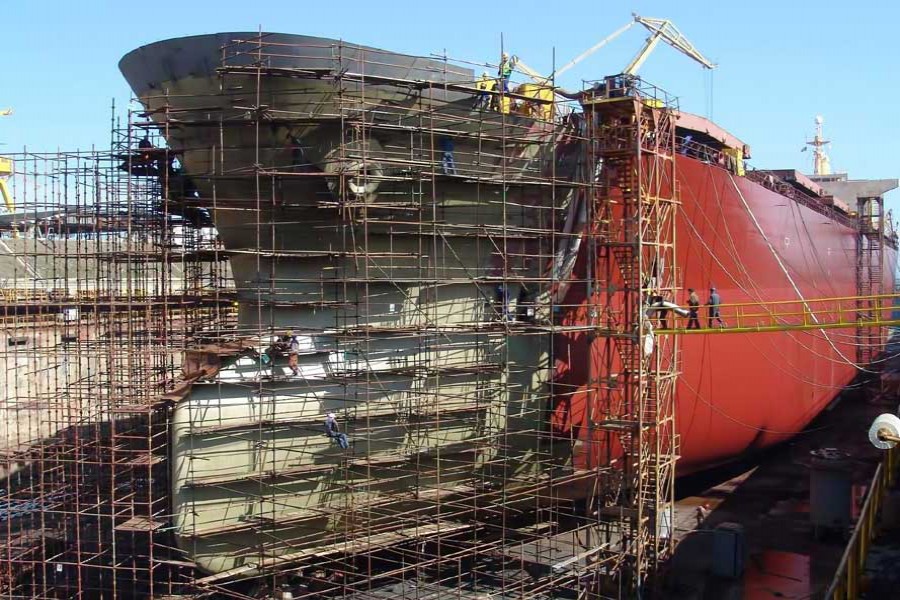If diversification of the export basket is an objective of utmost priority, shipbuilding is certainly a leading candidate. It has already proved its potential and given further patronage, it can take a large chunk of the expenditure on procurement of ships the world over. According to a leading global economic data analysis agency, the order for new ships across the world will rise to around $650.83 billion in the year 2026. It is about a decade's estimate. Shipbuilders in Bangladesh have earned a substantial amount of money through exports in the first five months of the current fiscal year, showing a notable growth over the corresponding period of the previous year. The indication for the rest of the year too is highly positive. This means the country is gearing up to seize the opportunity within limitations. Then, there is also a growing domestic market with demand for ocean-going larger ships. If the industry can bolster its capacity to meet the demands on both fronts, it may change the industrial landscape of Bangladesh.
Currently 300 shipyards are operating in the country but a lone company only exports vessels abroad. Had even one-tenth of those companies opted for building large ships for local and foreign buyers, the revenue earning for the country would have gone 100 times higher. Shipbuilders here have by now earned good reputation among foreign buyers. Ships built here are cheaper but so far as construction and technology are concerned, there is nothing left wanting. Countries like Germany, Denmark and Norway would not have preferred made-in-Bangladesh ships if the vessels failed to live up to their expectation. This fact serves as a confidence booster for ship-builders here. If shipyards are modernised and expanded, more companies will be able to take order for building ships for foreigners.
This leads to the issue of investment. Banks are less interested in extending loans to shipbuilding companies because the industry needs a long period, say 20 years at the least, before a shipbuilding company can reach the break-even point. Those who expect instant profit on investment are unfit for the industry. But once the wait is over it pays in spades. On that count, different terms and conditions for investment in the shipbuilding industry can be thought of, particularly given the enormous prospect. Bangladesh has the advantage of cheap labour but this is somewhat offset by the absence of raw materials here. Yet this constraint is unlikely to be an impediment for over a long period.
Of great importance here is the fact that shipbuilding industry is the one that opens the door of heavy industry for the country. A number of entrepreneurs began modestly but they have since earned enough expertise to build vessels like those produced in Korea and Japan - the most prominent shipbuilders. Now that the technology has been acquired, there is a need for fine-tuning it for adding the latest sophistication ocean-going vessels boast of. Collaboration with advanced countries such as Germany did the trick in the first phase and the exercise should be continued for its logical end.


